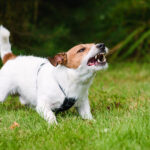Why Does My Dogs Head Shake
Shaking Heads and Wagging Tails: Understanding Why Dogs Shake
Dogs are wonderful companions that bring joy, love, and loyalty to our lives. They can also be mysterious creatures that sometimes exhibit strange behaviors that puzzle or worry us. One of the most common questions that dog owners ask is: why does my dog’s head shake? This article will explore some possible reasons for this behavior, including medical, behavioral, and environmental factors.
Medical Causes of Head Shaking in Dogs
One of the first things to consider when your dog shakes its head is whether there is an underlying health issue that needs attention. Some dogs may shake their heads as a way to relieve discomfort or pain in their ears, eyes, mouth, or nose. For example, dogs with ear infections may shake their heads vigorously to try to dislodge debris or fluid from their ear canals. Similarly, dogs with allergies, injuries, tumors, or foreign bodies in their nasal passages may sneeze or rub their noses and faces against objects before shaking their heads.
Other medical conditions that can cause head shaking in dogs include neurological disorders such as seizures, vestibular disease, or brain tumors; metabolic disorders such as hypothyroidism or diabetes; and autoimmune diseases such as lupus or pemphigus. These conditions may have other symptoms besides head shaking, such as lethargy, vomiting, diarrhea, loss of balance, changes in appetite or weight, skin lesions, or fever. If you notice any of these signs in your dog along with head shaking, you should consult your veterinarian for a thorough examination and diagnosis.
Behavioral Causes of Head Shaking in Dogs
While medical problems are a common cause of head shaking in dogs, sometimes the behavior has no apparent physical cause. In these cases, the shaking may be due to emotional or social factors that affect the dog’s mood or energy level. For example, some dogs may shake their heads as a way to release tension or excitement, especially after playing, greeting, or receiving attention from their owners. This type of shaking is usually short-lived and accompanied by other happy behaviors such as wagging tails, barking, or jumping.
However, some dogs may also shake their heads as a sign of anxiety, fear, or stress. This may happen when the dog is exposed to loud noises, unfamiliar objects or people, separation from a loved one, or punishment for misbehavior. In these cases, the head shaking may be part of a larger pattern of avoidance or aggression that the dog uses to cope with its perceived threat or discomfort. Some dogs may even develop compulsive disorders such as obsessive-compulsive disorder (OCD) or stereotypies that involve repetitive movements like head shaking.
Environmental Causes of Head Shaking in Dogs
In addition to medical and behavioral factors, there are also some environmental causes that can trigger head shaking in dogs. For example, dogs that live in areas with high pollen counts may experience seasonal allergies that cause itching and irritation in their eyes and noses. Similarly, dogs that swim frequently in pools or lakes may get water trapped in their ears, leading to infections or inflammation. Dogs that are exposed to harsh chemicals or toxins in their surroundings may also develop reactions that affect their skin, respiratory system, or nervous system.
Another environmental factor that can contribute to head shaking in dogs is temperature changes. Dogs are sensitive to heat and cold and may shake their heads as a way to regulate their body temperature or relieve discomfort. For example, dogs that have been outside in hot weather for too long may pant heavily and shake their heads to cool down. Conversely, dogs that have been outside in cold weather for too long may shiver and shake their heads to warm up.
Conclusion
In conclusion, head shaking in dogs can have multiple causes and meanings depending on the context and situation. While some head shaking may be normal and harmless, other cases may require medical attention or behavioral modification. As a responsible dog owner, it’s important to observe your dog’s behavior closely and seek professional help if you notice any signs of discomfort or distress. You can also prevent some cases of head shaking by providing your dog with a healthy diet, regular exercise, adequate socialization, and a safe and comfortable environment. Remember that dogs are not just pets but also members of our family who deserve our love and care. So next time you see your dog shake its head, give it a pat on the back and say: “Good boy/girl, I got you!”



